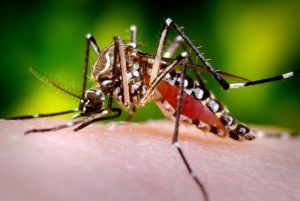Sri Lanka to use Wolbachia bacteria to control Aedes mosquitoes
by News DeskBy NewsDesk @bactiman63
Sri Lankan health officials have reportedly taken steps to introduce Wolbachia bacteria into the environment starting in February.

The pilot project is to be carried out in Colombo and Nugegoda. Bacteria are to be released in 25 Grama Niladhari Divisions around Colombo, Deputy Director General of the Ministry of Health Dr. Paba Palihawadana said revealed at a media briefing in Colombo Saturday.
The bacteria will be introduced after years of laboratory testing and field testing.
The bacteria is being used successfully in 12 countries, including Brazil, Colombia, Indonesia, the Pacific Islands, Vietnam, India, and Mexico.
Government officials say Wolbachia-carrying mosquitoes are bred and in partnership with local communities, released them into areas affected by mosquito-borne diseases.When Aedes aegypti mosquitoes carry Wolbachia, the bacteria competes with viruses like dengue, Zika, chikungunya and yellow fever reducing the transmission of the virus to the diseases.
Sri Lanka has recorded more than 85,000 dengue fever cases in 2019 to date.
- Measles: Samoa death toll rises to 70
- Eastern Equine Encephalitis 2019: The outbreak and the select agent dilemma
- Polio in Malaysia: 1st case reported in 27 years
- Wisconsin: Health officials investigate multiple adenovirus cases on college campuses
- China: Dozens of Brucellosis cases reported at Lanzhou institute
- Israel medical experts prepare for deployment to Samoa